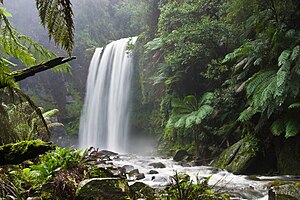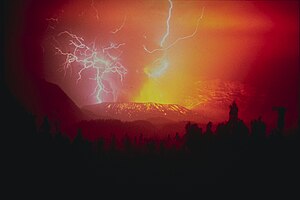
Back Natuur Afrikaans Natur ALS Naturaleza AN طبيعة Arabic প্ৰকৃতি Assamese Natura AST ТӀабигӀат AV Təbiət Azerbaijani طبیعت AZB Тәбиғәт Bashkir


Uasilia (kwa Kiingereza: nature, neno linatokana na lile la Kilatini natura ambalo linamaanisha "tabia ya kuzaliwa nayo" na lilikuwa tafsiri ya neno la Kigiriki φύσις, physis lililotumiwa na washairi na wanafalsafa wa kwanza.[1][2][3] ), maana yake ni ulimwengu ulivyokuwa kwa asili, kabla ya binadamu kuuathiri kwa utamaduni na hasa kwa ustaarabu wake, uliokuza teknolojia inayomwezesha kufanya mengi, mazuri na mabaya, pengine mambo yanayoleta faida ya haraka lakini yana madhara makubwa kwa siku za mbele.
Uasilia wote unasomwa kwa mpango na sayansi katika matawi yake yote.
- ↑ A useful though somewhat erratically presented account of the pre-Socratic use of the concept of φύσις may be found in Naddaf, Gerard The Greek Concept of Nature, SUNY Press, 2006. The word φύσις, while first used in connection with a plant in Homer, occurs very early in Greek philosophy, and in several senses. Generally, these senses match rather well the current senses in which the English word nature is used, as confirmed by Guthrie, W.K.C. Presocratic Tradition from Parmenides to Democritus (volume 2 of his History of Greek Philosophy), Cambridge UP, 1965.
- ↑ The first known use of physis was by Homer in reference to the intrinsic qualities of a plant: ὣς ἄρα φωνήσας πόρε φάρμακον ἀργεϊφόντης ἐκ γαίης ἐρύσας, καί μοι φύσιν αὐτοῦ ἔδειξε. (So saying, Argeiphontes [=Hermes] gave me the herb, drawing it from the ground, and showed me its nature.) Odyssey 10.302-3 (ed. A.T. Murray). (The word is dealt with thoroughly in Liddell and Scott's Greek Lexicon Archived 5 Machi 2011 at the Wayback Machine..) For later but still very early Greek uses of the term, see earlier note.
- ↑ Ducarme, Frédéric; Couvet, Denis (2020). "What does 'nature' mean?". Palgrave Communications. 6 (14). doi:10.1057/s41599-020-0390-y.